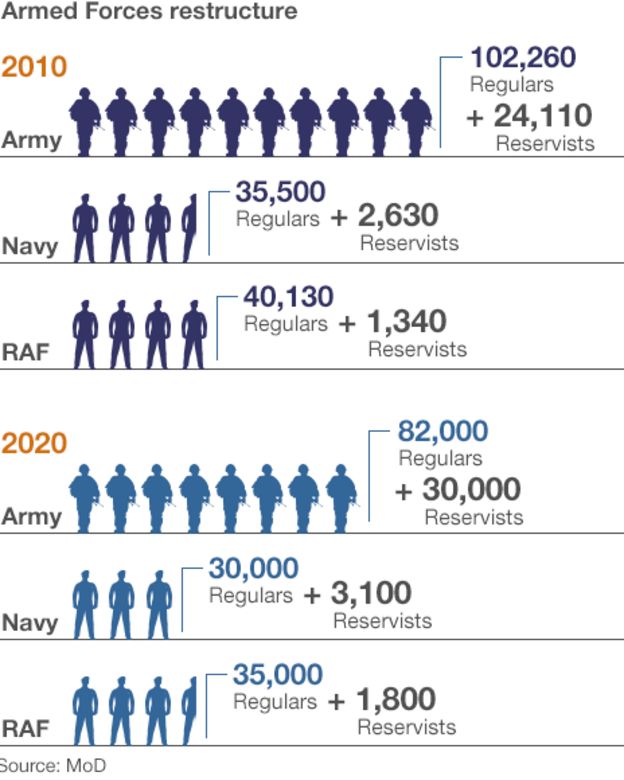The BBC News reported in June that:
The US defence secretary says he fears the UK could become "disengaged" if it makes further cuts to defence spending.
Ashton Carter told the BBC Britain had "always punched above its weight" and "it would be a great loss to the world if it now took action that would indicate disengagement".
The UK government said it was committed to meeting Nato's target of spending 2% of GDP on defence this financial year.
But it says future budgets will be determined in the next spending review.
Mr Carter's comments follow similar remarks earlier this year by the head of the US Army, General Raymond Odierno, who warned further cuts could see British units operating within US ranks, rather than divisions working alongside each other.
Julian Lewis, Conservative MP for New Forest East, told BBC Radio 4's The World at One
that 2% spending on defence "is not a target, it's a minimum" and any possibility that level may drop was "frankly staggering".
"The international situation is darkening and what we must avoid at all costs is having to spend the money later when a crisis has arisen, when by spending it now we might help deter people from provoking such crisis," he said.
The cross-party Defence Select Committee also argued recently that the rise of Islamic State and the increase in Russian aggression meant Britain's 2010 defence plans "no longer reflect the new threats to peace around the world".
Over recent years to value of civilian staff supporting and enabling our armed forced has been put forward as the cost effective Whole Force operating model.
Just yesterday in a leaked letter, one of the UK's most senior police officers voiced their concern that the cuts expected to the police forces in next week's Spending Review could "reduce very significantly" the UK's ability to respond to a Paris-style attack.
When the public believe we need resources in defence and security to safe guard them against acts of aggression, it will be interesting to see where politically both the government and senior civil servants have decided where the axe will fall in MOD.
Whatever cuts are announced in MOD they will result in a reduction in our defence capability and flexibility and people losing their jobs.


No comments:
Post a Comment